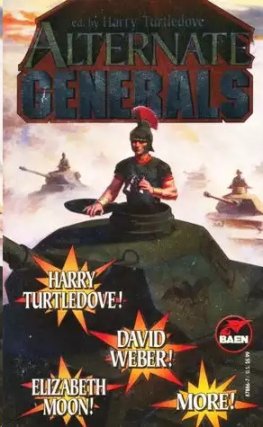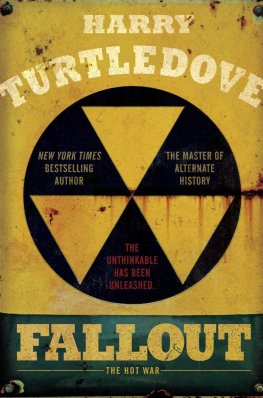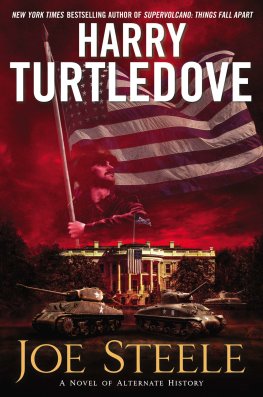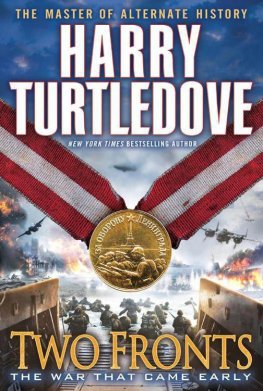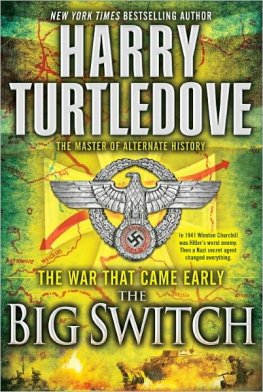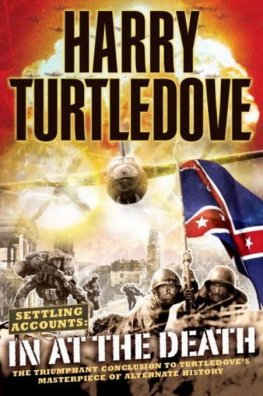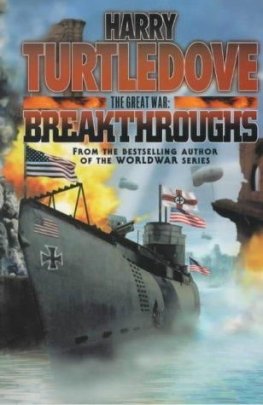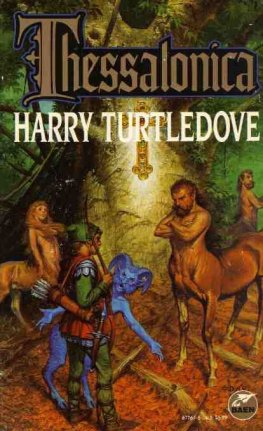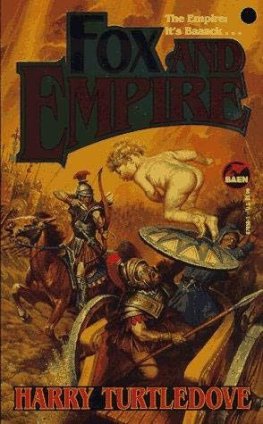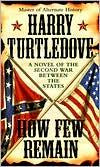Harry Turtledove - The Guns of the South
Here you can read online Harry Turtledove - The Guns of the South full text of the book (entire story) in english for free. Download pdf and epub, get meaning, cover and reviews about this ebook. year: 1993, publisher: Del Rey, genre: Detective and thriller. Description of the work, (preface) as well as reviews are available. Best literature library LitArk.com created for fans of good reading and offers a wide selection of genres:
Romance novel
Science fiction
Adventure
Detective
Science
History
Home and family
Prose
Art
Politics
Computer
Non-fiction
Religion
Business
Children
Humor
Choose a favorite category and find really read worthwhile books. Enjoy immersion in the world of imagination, feel the emotions of the characters or learn something new for yourself, make an fascinating discovery.
- Book:The Guns of the South
- Author:
- Publisher:Del Rey
- Genre:
- Year:1993
- Rating:5 / 5
- Favourites:Add to favourites
- Your mark:
- 100
- 1
- 2
- 3
- 4
- 5
The Guns of the South: summary, description and annotation
We offer to read an annotation, description, summary or preface (depends on what the author of the book "The Guns of the South" wrote himself). If you haven't found the necessary information about the book — write in the comments, we will try to find it.
The Guns of the South — read online for free the complete book (whole text) full work
Below is the text of the book, divided by pages. System saving the place of the last page read, allows you to conveniently read the book "The Guns of the South" online for free, without having to search again every time where you left off. Put a bookmark, and you can go to the page where you finished reading at any time.
Font size:
Interval:
Bookmark:
Harry Turtledove - The Guns of the South
Headquarters
January 20, 1864
Mr. President:
I have delayed replying to your letter of the 4th until the time arrived for the execution of the attempt on New Berne. I regret very much that the boats on the Neuse & Roanoke are not completed. With their aid I think success would be certain. Without them, though the place may be captured, the fruits of the expedition will be lessened and our maintenance of the command of the waters in North Carolina uncertain.
Robert E. Lee paused to dip his pen once more in the inkwell. Despite flannel shirt, uniform coat, and heavy winter boots, he shivered a little. The headquarters tent was cold. The winter had been harsh, and showed no signs of growing any milder. New England weather, he thought, and wondered why God had chosen to visit it upon his Virginia.
With a small sigh, he bent over the folding table once more to detail for President Davis the arrangements he had made to send General Hoke's brigade down into North Carolina for the attack on New Berne. He had but small hope the attack would succeed, but the President had ordered it, and his duty was to carry out his orders as best he could. Even without the boats, the plan he had devised was not actually a bad one, and President Davis reckoned the matter urgent...
In view of the opinion expressed in your letter, I would go to North Carolina myself. But I consider my presence here always necessary, especially now when there is such a struggle to keep the army fed & clothed.
He shook his head. Keeping the Army of Northern Virginia fed and clothed was a never-ending struggle. His men were making their own shoes now, when they could get the leather, which was not often. The ration was down to three-quarters of a pound of meat a day, along with a little salt, sugar, coffee-or rather, chicory and burnt grain-and lard. Bread, rice, corn... they trickled up the Virginia Central and the Orange and Alexandria Railroad every so often, but not nearly often enough. He would have to cut the daily allowance again, if more did not arrive soon.
President Davis, however, was as aware of all that as Lee could make him. To hash it over once more would only seem like carping. Lee resumed: Genl Early is still in theA gun cracked, quite close to the tent. Soldier's instinct pulled Lee's head up. Then he smiled and laughed at himself. One of his staff officers, most likely, shooting at a possum or a squirrel. He hoped the young man scored a hit.
But no sooner had the smile appeared than it vanished. The report of the gun sounded-odd. It had been an abrupt bark, not a pistol shot or the deeper boom of an Enfield rifle musket. Maybe it was a captured Federal weapon.
The gun cracked again and again and again. Each report came closer to the one before than two heartbeats were to each other. A Federal weapon indeed, Lee thought: one of those fancy repeaters their cavalry like so well. The fusillade went on and on. He frowned at the waste of precious cartridges-no Southern armory could easily duplicate them.
Page 1
He frowned once more, this time in puzzlement, when silence fell. He had automatically kept count of the number of rounds fired. No Northern rifle he knew was a thirty-shooter.
He turned his mind back to the letter to President Davis. -Valley, he wrote. Then gunfire rang out again, an unbelievably rapid stutter of shots, altogether too quick to count and altogether unlike anything he had ever heard. He took off his glasses and set down the pen. Then he put on a hat and got up to see what was going on.
At the tent fly, Lee almost collided with one of his aides-decamp, who was hurrying in as he tried to leave. The younger man came to attention. "I beg your pardon, sir."
"Quite all right, Major Taylor. Will this by any chance have something to do with the, ah, unusual gun I heard fired just now?"
"Yes, sir." Walter Taylor seemed to be holding on to military discipline with both hands. He was, Lee reminded himself, only twenty-five or so, the youngest of all the staff officers. Now he drew out a sheet of paper, which he handed to Lee. "Sir, before you actually see the gun in action, as I just have, here is a communication from Colonel Gorgas in Richmond concerning
"In matters concerning ordnance of any sort, no view could be more pertinent than that of Colonel Gorgas," Lee agreed. He drew out his reading glasses once more, set them on the bridge of his nose. Bureau of Ordnance, Richmond January 17, 1864 General Lee:
I have the honor to present to you with this letter Mr. Andries Rhoodie of Rivington, North Carolina, who has demonstrated in my presence a new rifle, which I believe may prove to be of the most significant benefit conceivable to our soldiers. As he expressed the desire of making your acquaintance & as the Army of Northern Virginia will again, it is likely, face hard fighting in the months ahead, I send him on to you that you may judge both him & his remarkable weapon for yourself. I remain, Your most ob 't servant, Josiah Gorgas, Colonel
Lee folded the letter, handed it back to Taylor. As he returned his glasses to their pocket, he said, "Very well, Major. I was curious before; now I find my curiosity doubled. Take me to Mr.-Rhoodie, was it?"
"Yes, sir. He's around behind the tents here. If you will come with me-" Breath smoking in the chilly air, Lee followed his aide-decamp. He was not surprised to see the flaps from the other three tents that made up his headquarters were open; anyone who had heard that gunfire would want to learn what had made it. Sure enough, the rest of his officers were gathered round a big man who did not wear Confederate gray.
The big man did not wear the yellow-brown that was the true color of most home-dyed uniforms, either, nor the black of the general run of civilian clothes. Lee had never seen an outfit like the one he had on. His coat and trousers were of mottled green and brown, so that he almost seemed to disappear against dirt and brush and bare-branched trees. A similarly mottled cap had flaps to keep his ears warm. Seeing Lee approach, the staff officers saluted. He returned the courtesy. Major Taylor stepped ahead.
"General Lee, gentlemen, this is Mr. Andries Rhoodie. Mr. Rhoodie, here is General Lee, whom you may well recognize, as well as my colleagues, Majors Venable and Marshall." Page 2
"I am pleased to meet all you gentlemen, especially the famous General Lee," Rhoodie said.
"You are much too kind, sir," Lee murmured politely.
"By no means," Rhoodie said. "I would be proud to shake your hand." He held out his own. As they shook, Lee tried to take the stranger's measure. He spoke like an educated man, but not like a Carolinian. His accent sounded more nearly British, though it also held a feint guttural undertone. His odd clothes aside, Rhoodie did not look like a Carolinian, either. His face was too square, his features too heavy. That heaviness made him seem almost indecently well fleshed to Lee, who was used to the lean, hungry men of the Army of Northern Virginia.
But Rhoodie's bearing was erect and manly, his handclasp firm and strong. His gray eyes met Lee's without wavering. Somewhere in his past, Lee was suddenly convinced, he had been a soldier: those were marksman's eyes. By the wrinkles at their corners and by the white hairs that showed in his bushy reddish mustache, Rhoodie had to be nearing forty, but the years had only toughened him. Lee said, "Colonel Gorgas gives you an excellent character, sir, you and your rifle both. Will you show it to me?"
"In a moment, if I may," Rhoodie answered, which surprised Lee. In his experience, most inventors were wildly eager to show off their brainchildren. Rhoodie went on, "First, sir, I would like to ask you a question, which I hope you will be kind enough to answer frankly."
Next pageFont size:
Interval:
Bookmark:
Similar books «The Guns of the South»
Look at similar books to The Guns of the South. We have selected literature similar in name and meaning in the hope of providing readers with more options to find new, interesting, not yet read works.
Discussion, reviews of the book The Guns of the South and just readers' own opinions. Leave your comments, write what you think about the work, its meaning or the main characters. Specify what exactly you liked and what you didn't like, and why you think so.

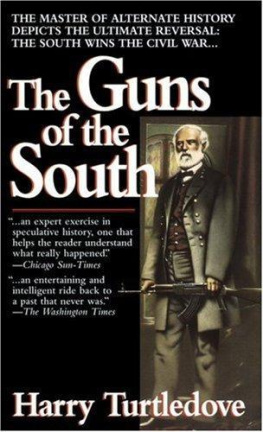

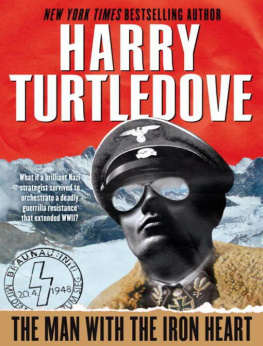
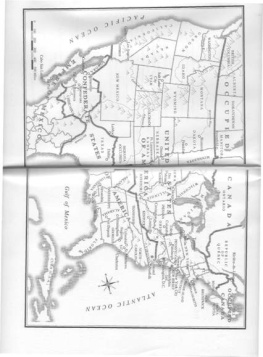
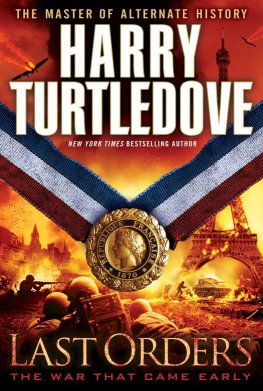
![Harry Turtledove - Worlds that werent : [novellas of alternate history]](/uploads/posts/book/79050/thumbs/harry-turtledove-worlds-that-weren-t-novellas.jpg)
